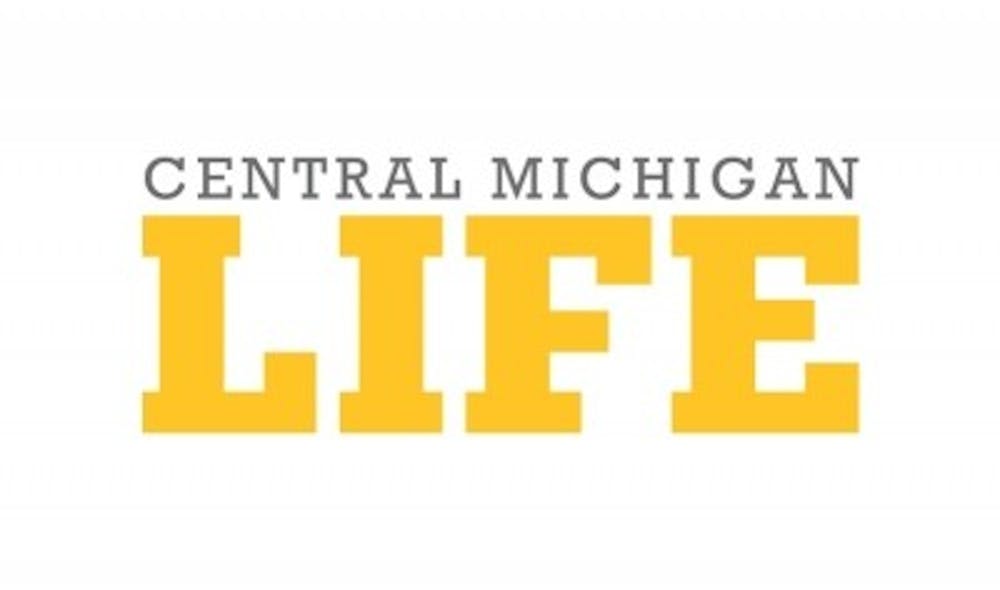LETTER TO THE EDITOR: CMU needs to address sexual assault more in order to find a solution
To the Editor,
American colleges have a rape problem, and that includes Central Michigan University. But before the university can address the issue, they need to stop blurring, and even hiding, the problem, to the point of protecting sexual predators.
In 2016, CMU reported in its Annual Security Report, as required by the Federal Clery Act, 18 rapes. That same year the Michigan State Police compiled Michigan Incident Crime Report stated that CMU's Department of Public Safety reported only one case of 1st Degree Criminal Sexual Conduct and 4 3rd Degree CSCs. What happened with the 13 rapes reported to Clery, but did not merit being called rapes when reporting to the State Police? Were those rapists let go to rape again? Unfortunately, the answer is "yes."
At a public meeting a few years ago, it was explained that if someone was expelled for a sexual assault, the university did not inform the college they were transferring to that CMU was sending them a potential rapist. There is a very real possibility that they will rape again. In the White House Council on Women and Girls report, 7 percent of college men admitted committing or attempting rape, 63 percent admitted multiple offenses, “averaging six rapes each.”
CMU has a history of hiding the threat of sexual assault from students. Recently, CMU had sexual assault survivor Brenda Tracy on campus to speak to football and basketball players. Despite her "powerful message," Athletics labeled her presentation "private" and refused access to the press. "When it comes to discussing sexual assault, CMU prefers to have that conversation quietly and behind closed doors, if at all." (Secrecy is part of the problem, Central Michigan Life 9/16/18). Tracy could have given students valuable information.
Earlier this year, CMU's Society of Professional Journalists investigated universities' compliance with the Federal Freedom Of Information Act. SPJ sent out FOIA requests to the Mid-American Conference asking "for all incident reports relating to sexual assault, harassment and violence, along with arrest records and its policies and guidelines when dealing with potential victims." Of the 12 universities, CMU was the only one to outright deny the request, earning it a failing grade. “When (information) doesn’t look so hot for (CMU), it seems that we have no problem keeping information quiet", said Jordyn Hermani, former CM Life editor-in-chief. (CMU given failing grade in transparency during SPJ FOIA, 4/13/18).
In 2015, CM Life reporter Sydney Smith asked for a list of the locations of rapes reported on campus, not the names of the victims, not the exact addresses, only the building or resident hall where they occurred. Smith explained, "As a woman, I'd like to know where I'm safe on campus and where I'm not. If rapes were reported at Greek houses, I want to know which ones so I can avoid them." Several FOIA requests were made and all were denied, despite the fact that police reports are public records. Eventually, she discovered that "while request after request for this information was denied, police are required to keep a 60-day crime log available for public access. Beyond this, the information is archived." Past crime logs, up to seven years, must be made available in two business days. It took all year, but by combing through 130 pages, she and fellow staff members were able to generate a map. (CMU Should be open about sexual assault, CM Life, 4/27/16).
In the past, CMU has had to be forced to inform students of serious threats. In 2014, the Delta Chi fraternity was suspended, reportedly for alcohol infractions. It wasn't until a FOIA request from CM Life was it revealed that they had been accused of sexual assaults going back 15 years. (Details of Delta Chi suspension revealed after FOIA request, CM Life 1/13/14). "(Tom) Idema (Director of the Office of Student Conduct) said just because the group wasn’t charged with the assault doesn’t mean that an assault didn’t occur,” (“No Warning,” CM Life 4/20/14). Only one person was punished, academic probation for one semester, but, despite cyber-bullying, threats and the victim and another woman having their tires slit, no further action was taken.
You can believe that CMU is safe, or you can believe that one in four college women (one in 71 men) is assaulted. Or, you can believe that it is 200-300, the number CMU's Sexual Aggression Peer Advocates founder, Steve Thompson, says SAPA receives a year (The Red Zone CM Life, 8/23/14). Or you can believe CMU Police Chief William Yeagley, “there’s roughly a third of freshman girls who have been sexually assaulted.” (8/23/14).
Now is the time to be aware of the threat. You are most likely to be the victim of a sexual assault while you attend college and that is most likely to happen between Welcome Weekend and Thanksgiving break (known as The Red Zone).
Be safe. Remember a person who is too drunk to drive, is too drunk to legally give consent. And, most of all, don't rape.
-Matt Mertz
Mount Pleasant







